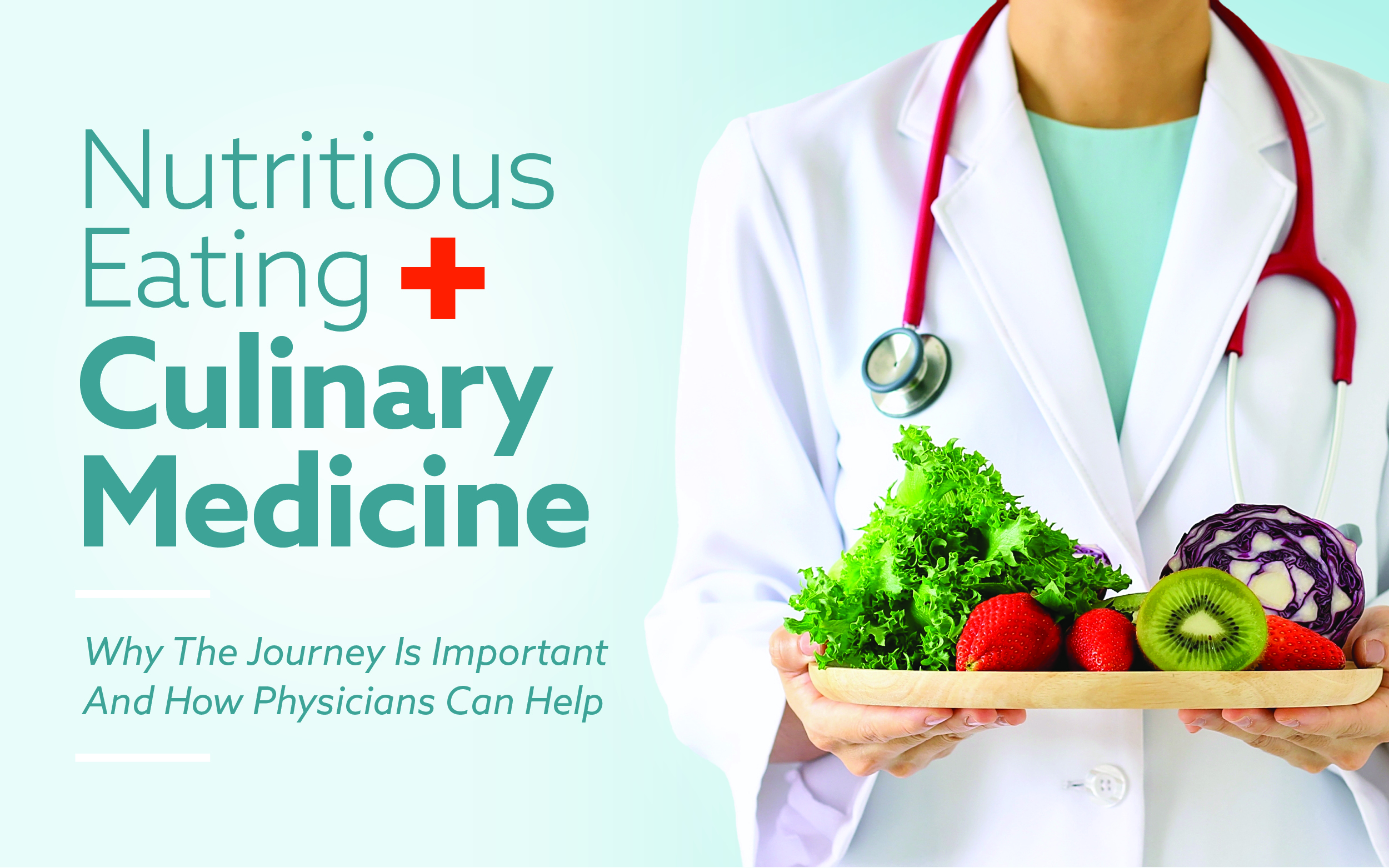Nutritious Eating + Culinary Medicine – Why The Journey is Important and How Physicians can Help

By Kaitlyn Tholen
f it is true that we are what we eat, then it is worth making good choices when it comes to food and beverages. Proper nutrition is the driving force that has kept the human civilization alive for countless millennia, evolving along with us as the needs and capabilities of the modern individual grew.
Ironically, nutrition statistics and facts on healthy food and beverage intake today show the exact opposite of progress as over two-thirds of the adults and one-third of U.S. children are overweight or obese. The Standard American Diet, also known as SAD, has been associated with nearly all chronic diseases and consists of processed foods that are low in nutrients and high in saturated fats. Diet has been identified as the single most important risk factor for morbidity and mortality in the U.S. with 80 percent of all chronic diseases being preventable through diet changes. Choosing whole foods and plant-based foods has been shown to decrease and even reverse cardiovascular disease, decrease cancer risk, and normalize blood glucose levels. Because of this, it is important to educate healthcare providers on how to discuss food behavior changes with their patients in a way that balances the patient’s culture and resources.
Culinary medicine is an evidence-based field that combines food and nutrition knowledge with health and disease prevention. Despite the impact that nutrition education has on patient care, only 25 percent of medical schools have a dedicated culinary medicine course for medical students. LSU Health Shreveport offers a culinary medicine course to all fourth-year medical students online with both live and recorded cooking classes. Various aspects of culinary medicine, including specific diets such as the Mediterranean diet, and its impact on cardiovascular disease are included in the curriculum.
In addition to the culinary medicine curriculum, a new club called Cooking Healthy Options for Patients (CHOP) aims to educate students, faculty, and patients on evidence-based recipes that cultivate healthy relationships with plant-based food. By educating students and faculty to choose and cook healthy food for themselves, research proves they are more likely to have conversations about food with their patients and to empower them to choose foods that are healthy and nutritious.
Since its creation in November 2021, CHOP has partnered with the LA Urban Gardening Initiative, Inc. to increase community access to fresh-grown vegetables, fruits, and herbs. CHOP has also planned monthly supper clubs and demonstrations at local clinics to cook a meal together and discuss small changes to make to create plant-forward meals. The goal is to demonstrate how eating healthy food can be tasty, fast, and inexpensive and can fit into recipes and foods that patients are already comfortable cooking.
Begin your healthy eating journey to create your best possible medical future. Acknowledging there is a problem or room for improvement is the first step towards improving your quality of life and potentially even adding years to your life expectancy.

